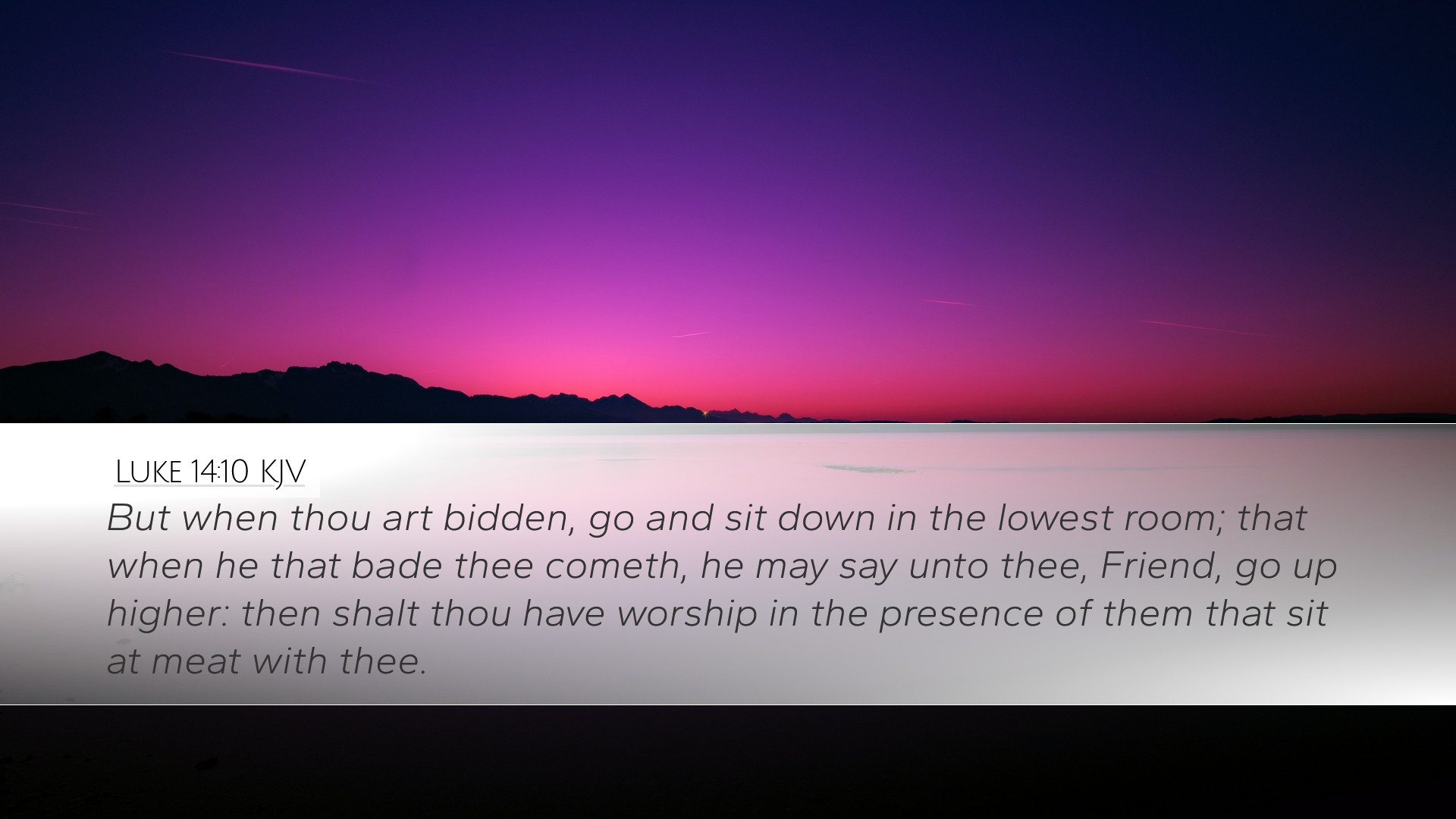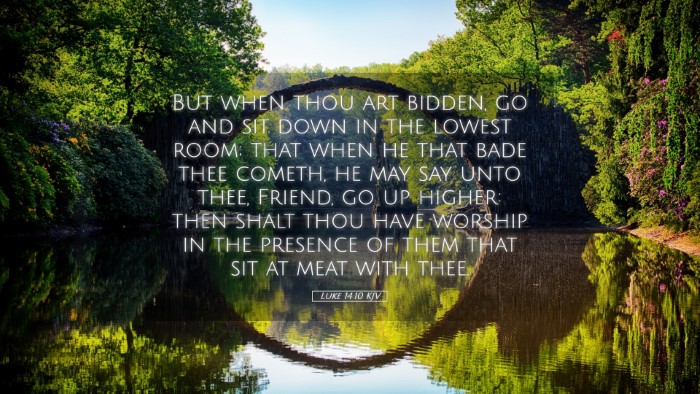Commentary on Luke 14:10
Verse: "But when you are invited, go and recline at the last place, so that when the one who invited you comes, he may say to you, 'Friend, move up higher.' Then you will have honor in the sight of all who are at the table with you."
Introduction
In this verse, Jesus illustrates a principle of humility and the nature of honor in human relationships. This teaching comes as part of a larger discourse on pride and social status, particularly as it relates to the Kingdom of God. In the context of a meal, where status is often marked by seating arrangements, Jesus offers profound wisdom about how one might navigate social interactions with grace and humility.
Commentary Insights
Matthew Henry's Commentary
Matthew Henry emphasizes the importance of humility in our social conduct. He asserts that to be humble is to acknowledge our rightful place before God and man. Henry expounds on the idea that taking the lowest seat may seem counterintuitive in a society that often prizes self-promotion and status. He encourages believers to trust that true honor comes from God, who sees the heart and will exalt those who humble themselves.
- Humility is Key: Henry draws attention to humility being a foundational virtue in the Kingdom of God. He echoes that Jesus was often critical of prideful attitudes that belittle others.
- Divine Promotion: The honor bestowed upon the humble by their peers is a reflection of God’s recognition. Henry notes that God promotes His faithful servants at the right time.
Albert Barnes' Notes on the New Testament
Albert Barnes provides a practical dimension to Jesus’ teaching. He interprets the directive to take the lowest seat not merely as a social strategy but as a moral imperative. Barnes focuses on the principle of seeking the lowest place not out of deceit, but to genuinely embody humility.
- Invitation to a Higher Place: Barnes highlights that the rise to a higher seat represents not simply social vindication, but spiritual elevation whereby one's character and actions are recognized by others.
- Lessons on Social Interactions: He advises readers that this principle can apply broadly to life; taking the lower place can often lead to greater respect and honor from others.
Adam Clarke's Commentary
Adam Clarke offers an in-depth study on the cultural nuances of dining customs in ancient Israel. He points out that Jesus' audience would have readily understood the social dynamics at play during a feast. Clarke explains that the act of reclining at the table denotes intimacy and acceptance within the group, and thus is a matter of social significance.
- Context of Humility: Clarke suggests that Jesus positions Himself as an example of humility among those who have high social standing, making the point that true discipleship involves a willingness to lower oneself.
- Spiritual Consequence: The divine principle is that those who self-promote may ultimately find themselves humbled, whereas those who seek to honor others will find their own honor enhanced by God.
Theological Implications
Luke 14:10 is rich with theological significance. It points to the broader theme of God's Kingdom, where the last will be first, and where the meek shall inherit the earth. This verse invites deeper reflection on how Christians are to live counter-culturally, modeling humility in a world that often glorifies ambition and self-exaltation.
Practical Applications
- Self-Examination: Believers are encouraged to examine their own hearts regarding pride and social status. Are we seeking recognition, or are we content to serve without the need for accolades?
- Serving Others: Practicing this principle involves actively seeking out opportunities to serve and uplift others, reflecting Christ's love in our actions.
- Encouraging Humility in Community: Pastors and church leaders might emphasize the importance of humility in church life, fostering environments where everyone feels valued and honored.
Conclusion
Luke 14:10 serves as a compelling reminder of the Kingdom's values where humility is celebrated and the self-righteous are called to reconsider their paths. This teaching challenges believers to redirect their aspirations from seeking worldly honor to seeking the honor that comes from God, creating a space for true community where love and respect reign supreme.


